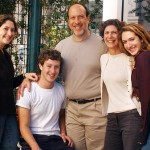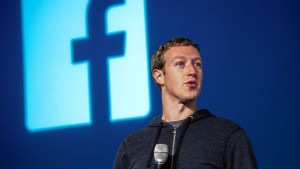www.Facebook.com
| Offering |
Pioneering Online Social Network |
| Value Proposed | A way to be more socially connected.
|
| Key Resources Leveraged | Internet. Hacking Expertise. |
| Societal Progress | “Profit” — benefit to U.S. economy. “People” — Facebook intends its contribution to a “more open and connected society” to support progress throughout global society. |
1. Agent Path to “What could be” Hypothesis
Hacking channeled to personal value for more open and connected society —
By age ~10, Mark Zuckerberg began developing a love of, and unusual skill for, programming practical applications — “hacking” … to use Zuckerberg’s words.
- His dentist father “was an early user of digital radiography, and he introduced Atari BASIC computer programming to his son.” “The house and the [home-based] dental office were full of computers.”
 By age 11, Mark had a programming tutor and “soon after took a graduate level programming course” at a local college. He began creating applications like messaging between his family’s in-home computers and creating games.
By age 11, Mark had a programming tutor and “soon after took a graduate level programming course” at a local college. He began creating applications like messaging between his family’s in-home computers and creating games.
- As a generally successful and engaged student, programming was not central to Zuckerberg’s regular studies. In high school at Phillips Exeter Academy he earned a “diploma in Classics” and continued that focus as a college student at Harvard.
- But hacking always was a regular and productive part of Zuckerberg’s life. For his Exeter senior project, Zuckerberg wrote software for a music player “called Synapse,” which “used artificial intelligence to learn users’ listening habits.” Reportedly, both Microsoft and AOL expressed interested in buying the software and in hiring Zuckerberg.
 Zuckerberg has described that social connection also was a regular and valued part of his life, beginning in his home. At Exeter, he was captain of the fencing team, and at Harvard he joined a fraternity and met the woman who would become his steady girlfriend and then wife.
Zuckerberg has described that social connection also was a regular and valued part of his life, beginning in his home. At Exeter, he was captain of the fencing team, and at Harvard he joined a fraternity and met the woman who would become his steady girlfriend and then wife.
- At Harvard, hacking was central to Zuckerberg’s dorm life, where he “served as the coder” for group-generated ideas. Noteworthy hacks included: “CourseMatch,” which allowed students to see the courses others were taking; “FaceMash,” which allowed students to compare the attractiveness of two Harvard students, voting with click of mouse, and then “TheFaceBook,” an online Harvard directory, open only to those with Harvard email addresses, where students could see each other’s self-controlled profiles, and which spread virally at Harvard.
2. “What Could Be” Hypothesis
After the success of TheFaceBook at Harvard, Zuckerberg introduced it to other selective colleges/universities (e.g., Columbia).
- …
- …
3. “How” Hypotheses
- …
- …
4. Change By Way of Value
- …
- …
5. Why Do This?
- …
- …
“In January 2014, Zuckerberg recalled:
I remember really vividly, you know, having pizza with my friends a day or two after—I opened up the first version of Facebook at the time I thought, “You know, someone needs to build a service like this for the world.” But I just never thought that we’d be the ones to help do it. And I think a lot of what it comes down to is we just cared more.” [Entrepreneur]
Sources include:
- Jason Fell (14 May 2014). “As Mark Zuckerberg Turns 30, His 10 Best Quotes as CEO”. Entrepreneur. Entrepreneur Media, Inc. Retrieved 16 May 2014.
